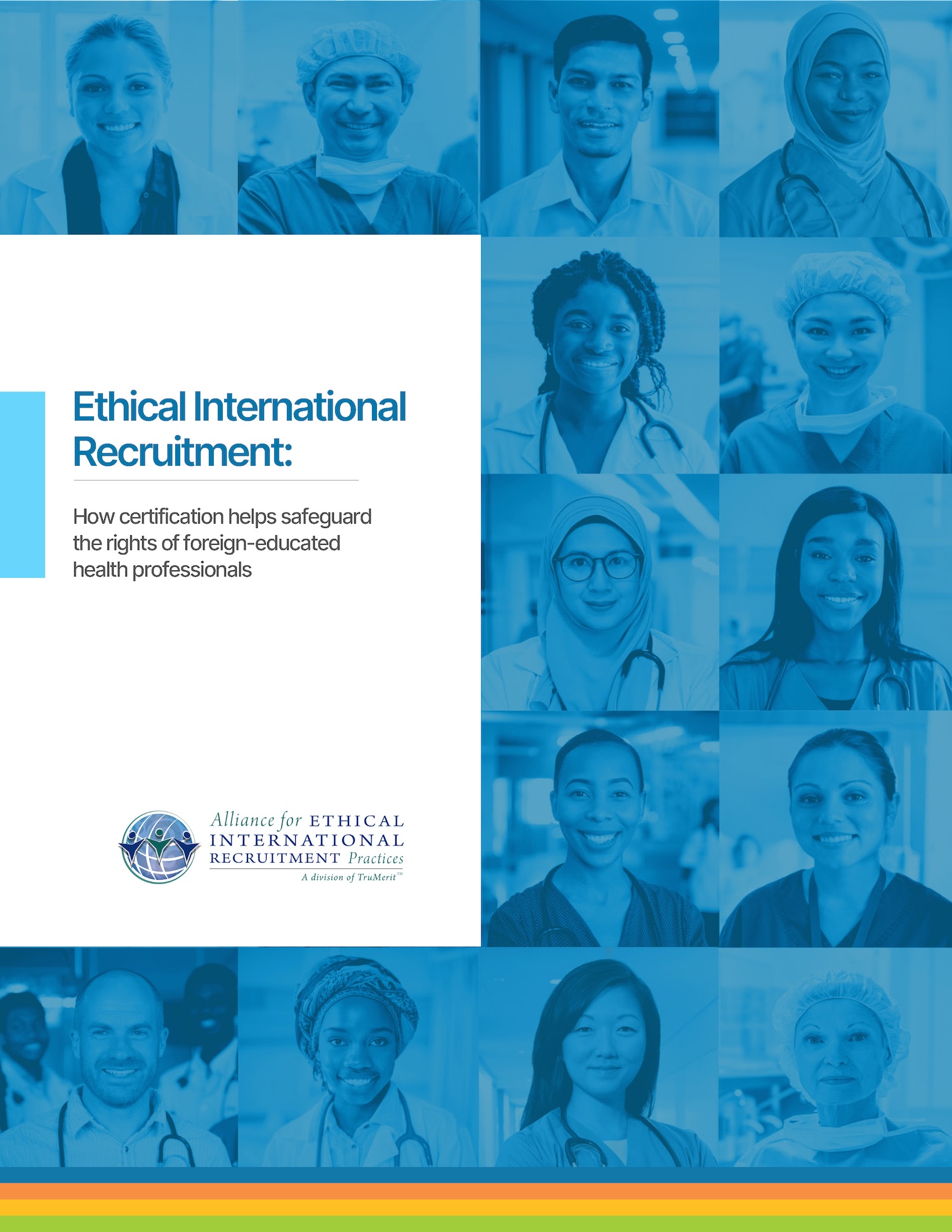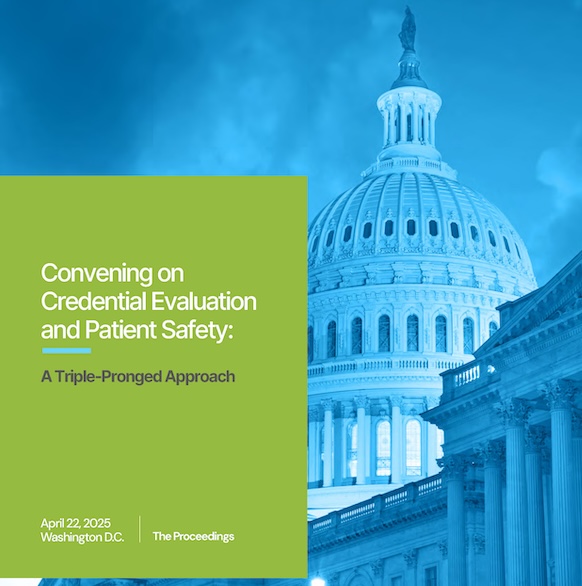TruMerit’s position
When evaluating the job-readiness of migrating health professionals educated outside of an English-speaking country, assessing English language proficiency (ELP) is essential to the process. Unfortunately, while language proficiency is a crucial part of care delivery, it is often considered an optional requirement by authorities, jeopardizing patient safety.
TruMerit™ (formerly CGFNS International) believes that ELP assessment is critical to ensuring safe patient care in any U.S. care delivery setting. Competent communication is central to the effective functioning of migrating health workers within multidisciplinary care teams and this competence must be assessed and confirmed for eligibility to practice.
Background and analysis
Section 343 of the Illegal Immigration Reform and Immigrant Responsibility Act of 1996 (IIRIRA) highlighted English language proficiency as a key requirement for protecting patient safety and ensuring effective communication across the healthcare team. While novel at the time, insistence on an ELP standard for foreign-educated healthcare workers to meet employment visa requirements has been corroborated in the research literature. Health workforce research provides evidence of how a healthcare worker’s lack of language proficiency can imperil patient safety. Clear guidance on proper application of the ELP standard is a necessary component of patient safety measures.
Foreign-educated healthcare workers seeking employment-based visas, unless exempt, must achieve minimum scores on an approved ELP test. The Health Resources and Services Administration (HRSA) originally approved TOEFL, TOEIC, and IELTS for this purpose. Since then, HRSA added other English proficiency tests—MET, OET, Cambridge English Qualifications (B2 First, C1 Advanced, or C2 Proficiency Exams), and PTE Academic—to the list of approved tests.
Although HRSA has established specific ELP requirements for healthcare professionals, these requirements have not been validated for the respective professions in U.S. healthcare contexts. In addition, each ELP test has its own cut scores that were set either through an idiosyncratic approach by each test publisher or based on standard-setting studies conducted for other purposes and in contexts other than U.S. healthcare. Although a variety of standard-setting studies have been completed, differences in their panelist composition, method, and recency have made it difficult to combine results from the studies.
TruMerit values its role as an ardent steward of the visa screening mandate. The inability to achieve consistency in ELP standards over the past years has prompted us to bring this matter to public and industry-wide attention.
The absence of a consistent standard that international healthcare workers must meet to satisfy eligibility requirements will impede our ongoing efforts to protect patient safety. It is necessary to work directly with the ELP test publishers, with other approved credential evaluation organizations, and with HRSA to achieve a consistent standard for public safety.
To this end, in January 2025 we convened all ELP test publishers at our headquarters in Philadelphia to study this matter. The consensus achieved during this first ELP convening and HRSA’s willingness to consider our report have been most encouraging. The recommendations include (1) an immediate adjustment in cut scores from the respective tests based on completed research and (2) a longer-term study to set new cut scores for health workers migrating into U.S. healthcare settings.
While the healthcare community awaits HRSA’s decision regarding ELP standards, TruMerit stands solidly behind ELP test publishers to continue to provide migrating health professionals worldwide with access to ELP assessment supported by research and scientific evidence. TruMerit further urges ELP publishers to validate their assessment protocols to reflect the nuances of the U.S. healthcare contexts. These outcomes are essential to credentialing excellence for U.S.-bound migrating health workers.
Conclusion
Since being founded in1977, TruMerit has been evaluating foreign-educated nurses and informing decisions regarding their admittance to the nursing workforce in the United States. Although we have expanded our services to include professionals from additional healthcare disciplines, we have remained steadfast in our mission to safeguard the public interest—and, more specifically, to protect patient safety—while ensuring fairness and equity in access to global mobility and career opportunities for health professionals worldwide.
To uphold the gold standard that undergirds our approach to evidence-based credential assessment and defines our excellence in credentialing for the migrating health workforce, we must persist in our support for ELP assessment for those seeking employment in the U.S. and other English-speaking countries. TruMerit is not an ELP test publisher. We see our role as a trusted advisor and collaborator with both the ELP testing community and with standards-setting and regulatory authorities that value our expertise in informing policy and practice decisions that protect patient safety while supporting career mobility of healthcare workers worldwide. TruMerit is well-suited for this role as an impartial arbiter of these standards and as a fierce advocate for achieving credentialing excellence.







